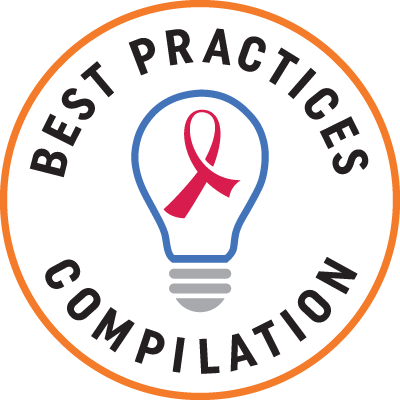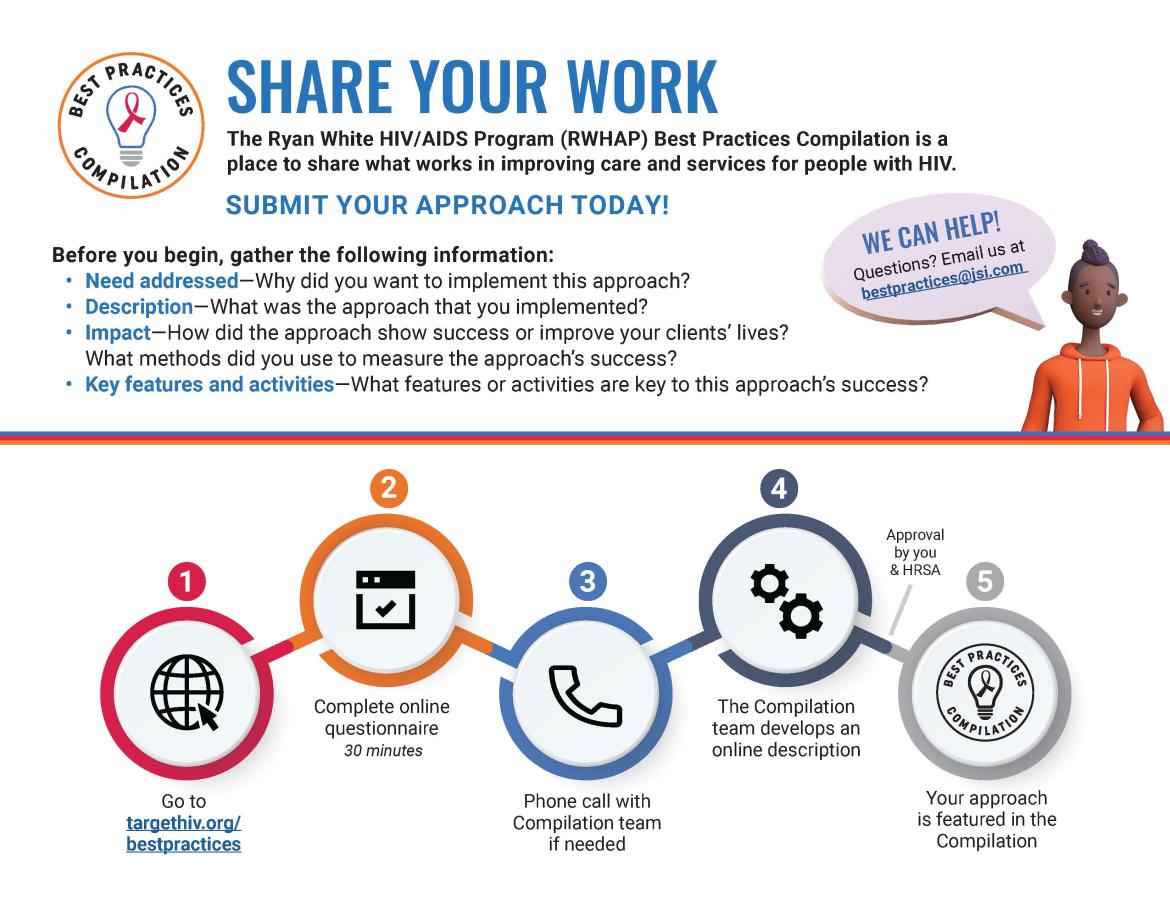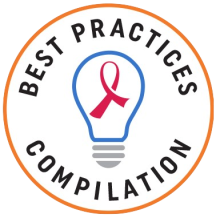The Ryan White HIV/AIDS Program (RWHAP) Best Practices Compilation is a hub for knowledge sharing across the HIV care and service community. We gather and share established and emerging approaches that work to improve care and services for people with HIV. Profiles of approaches included in the Compilation provide key information, guidance, and resources to support replication by other organizations.
Providers can use the Best Practices Compilation to:
- Search for approaches that may work for their organization.
- Share what works in their agency to improve the lives of their clients.
- Nominate innovative programs to help the Compilation grow.
Browse for More
Topic Areas
Clinical Quality Management,
Disparities,
Data & Reporting,
Data Utilization,
HIV Care Continuum,
Prevention,
Linkage to Care,
Retaining in Care,
Achieving Viral Suppression,
HIV Testing & Diagnosis,
Antiretroviral Treatment,
Key Populations,
Adolescents & Youth,
Aging / Older (50+),
Black/African American,
Hispanic/Latino,
MSM - Men who have Sex with Men,
Justice Involved,
Rural,
Transgender People,
Women,
Medical & Support Services,
Adherence,
Case Management,
Employment Support for People with HIV,
Health Literacy,
Hepatitis,
Housing & Homelessness,
Mental & Behavioral Health,
Nutrition,
Outpatient Medical Care,
Oral Health Care,
Pediatric Care,
Sexually Transmitted Infections,
Substance Use & Addiction,
Transportation,
Peer Programs,
Stigma/Legal,
Evaluation,
Ryan White HIV/AIDS Program & Parts,
Part A - Hard Hit Urban Areas,
Part B - States/Territories,
Part B - AIDS Drug Assistance Program (ADAP),
Part C - Community-Based Early Intervention,
Part D - Women, Infants, Children, Youth,
Part F - Dental Programs,
Part F - SPNS Models of Care,
Service Models,
Collaboration,
Emerging and Innovative Models,
Integrated Care,
Interdisciplinary Teams,
Medical Homes,
Rapid ART,
Social Media,
Telehealth,
Trauma-Informed Care
Brand image





